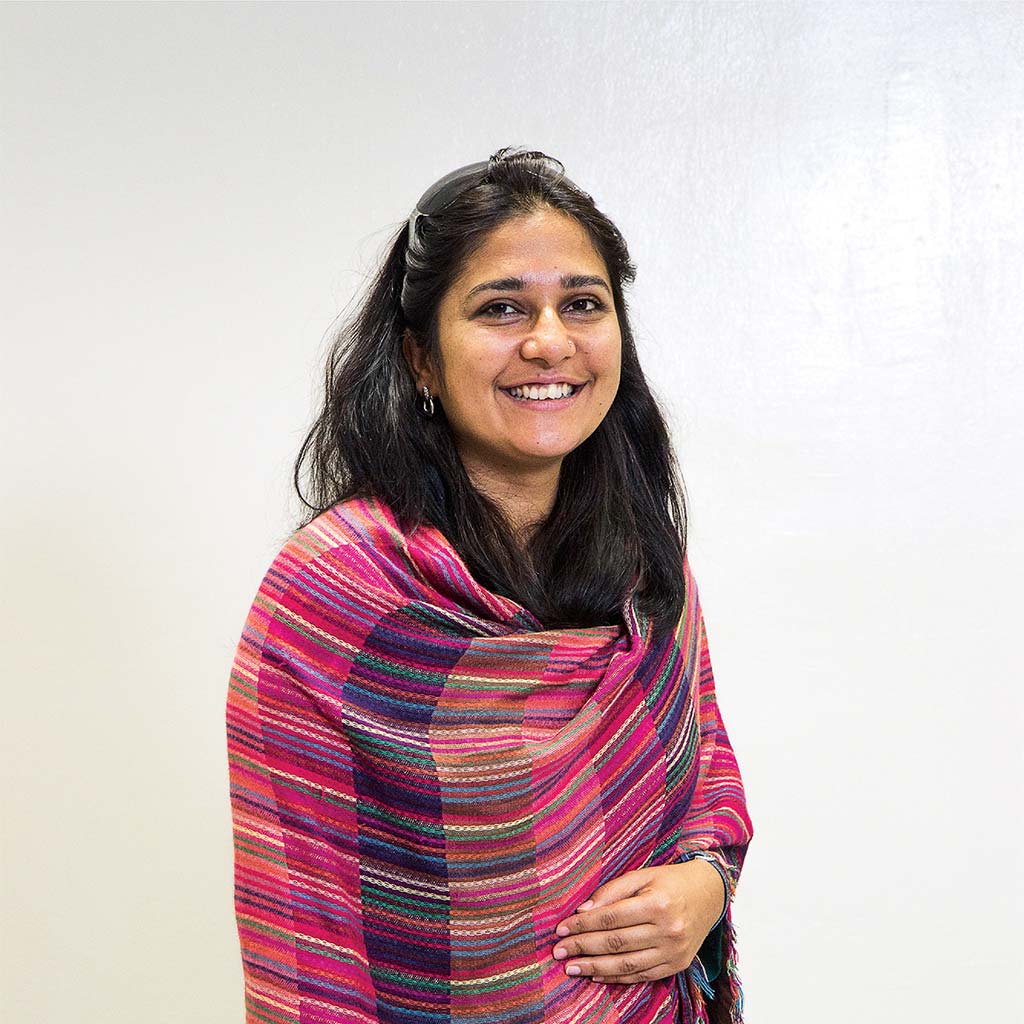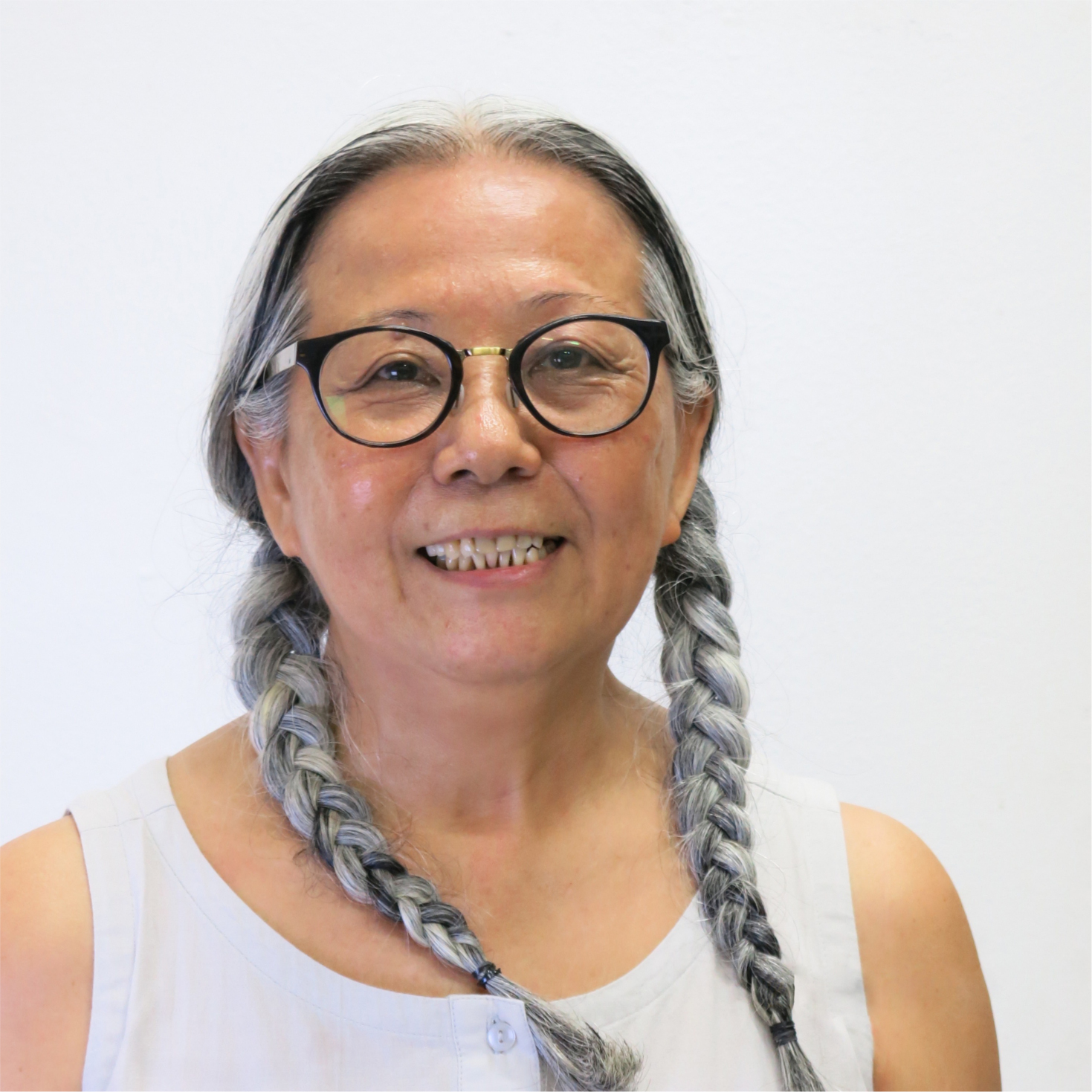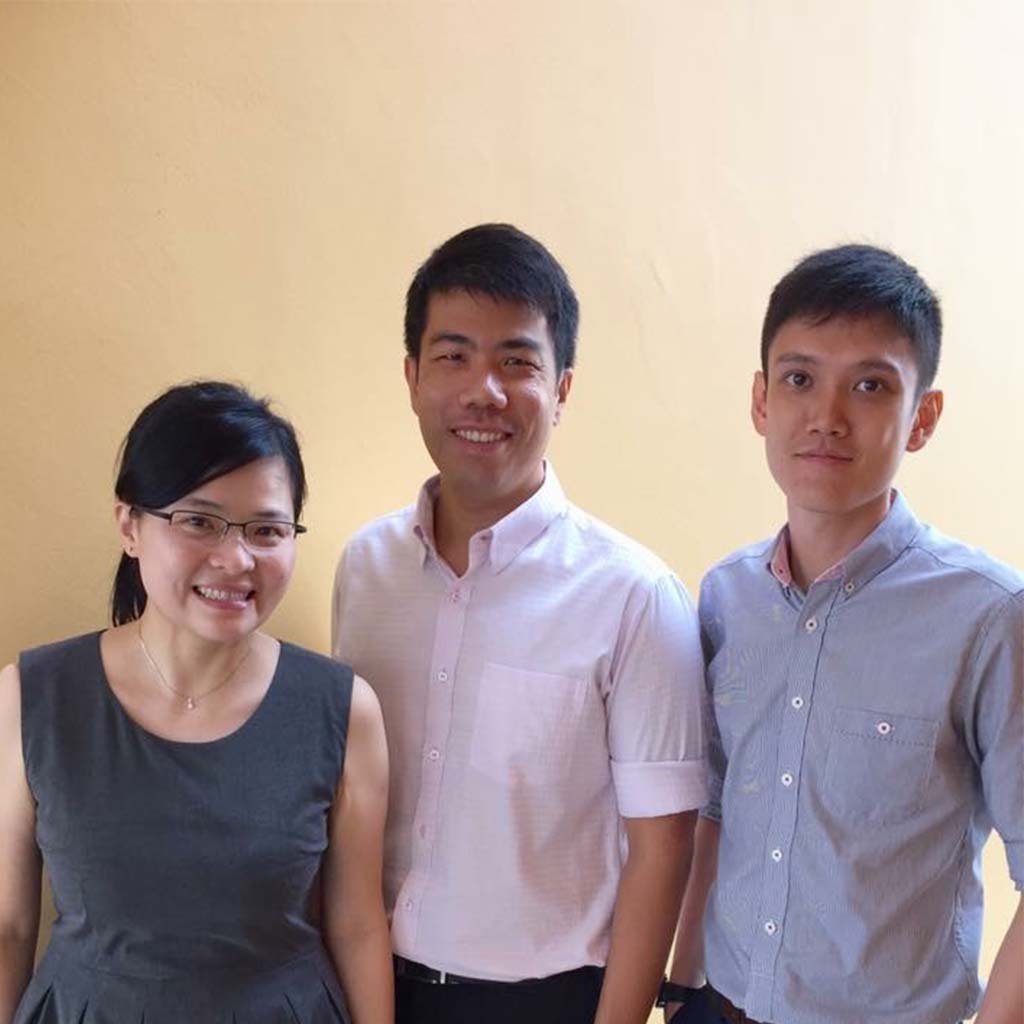 PORTRAIT
PORTRAIT
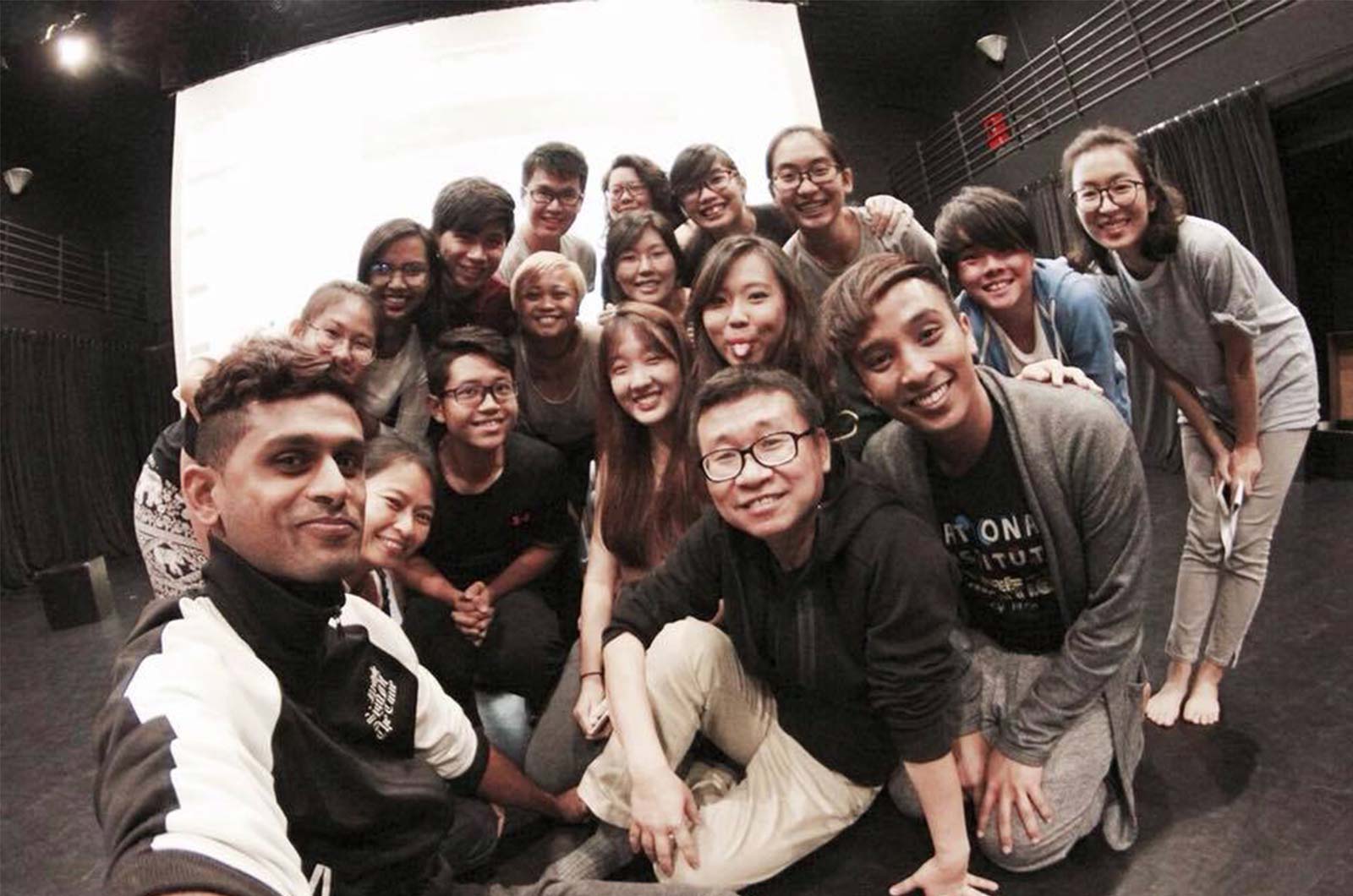
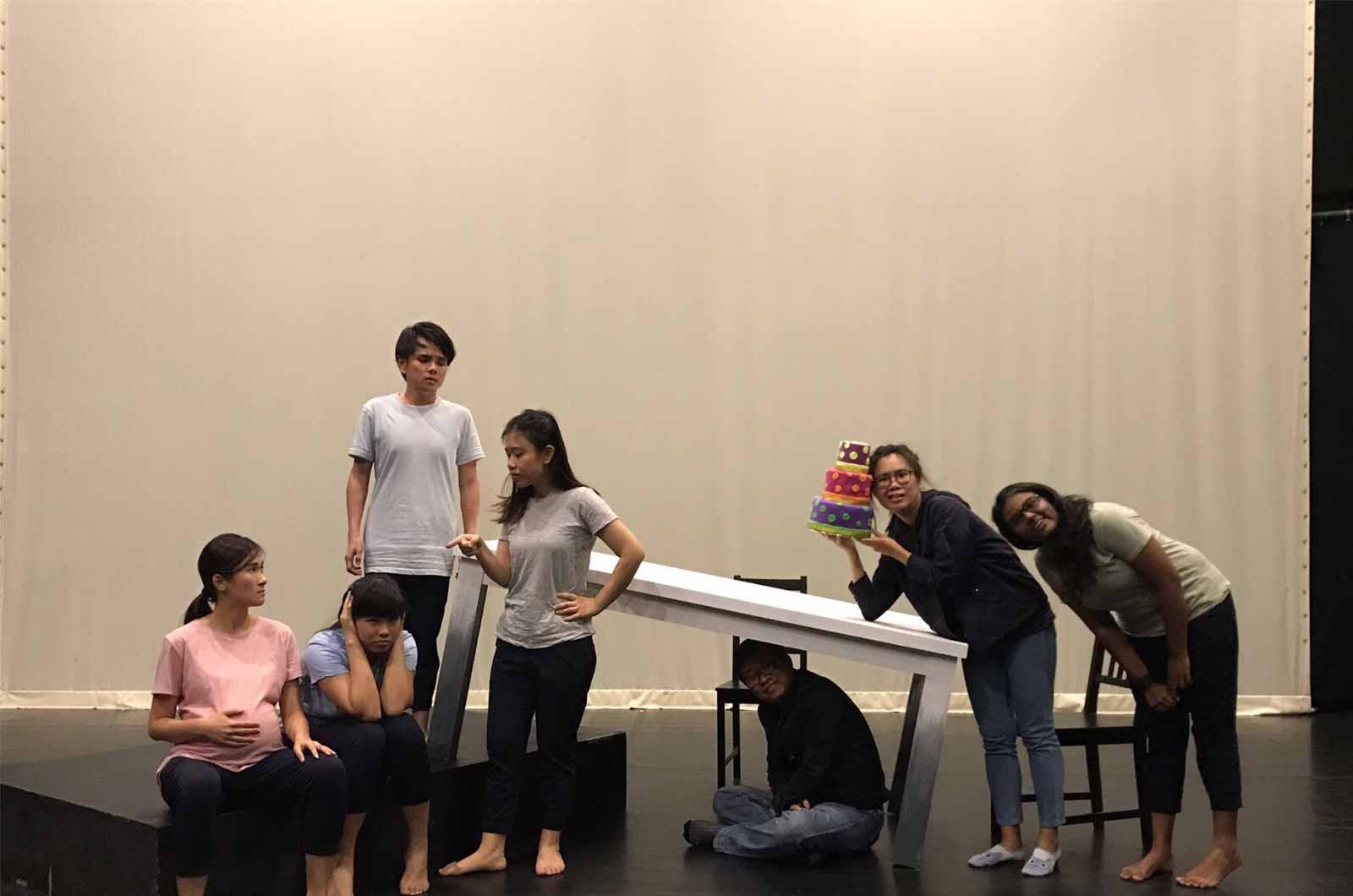
Singapore Art Week returns for its sixth edition in January 2018. In light of this annual celebration of the visual arts, three student-teachers share their experiences of art education and its role in shaping their future perspectives as educators.
Tan Jue Ying (JY), Lim Weeshan (WS), and Eleora Koh (EL) studied ‘Performance and Production: Rehearsing, Staging, Responding’, a drama module under the tutelage of Kok Heng Leun, who was NIE Visiting Artist for the August 2017 semester.
Your graduation project was actually a performance that the six of you put together. Do share what your performance was about.
EL: Our play, titled Happy Birthday, was about adoption. We wanted to explore this topic because it was something beyond ourselves: many of us have never been involved in adoption. How do we, and how should we, view the whole issue of adoption? From the adopter’s point, the adoptee’s point, and maybe even, society’s point of view?
Through this topic, we were able to challenge our understanding and develop empathy from different perspectives. Our story is simply summed up in 3 sentences: It’s about a father seeking closure. It’s about a mother seeking wholeness. It’s about a daughter seeking answers. In the play, these three characters go on very different journeys to find themselves.
Mr Kok is known to advocate the use of community-based art to communicate pertinent civic issues faced by Singapore society. Describe your experiences learning from an artist with such a unique background.
EL: When we first explored the theme of adoption, Mr Kok introduced different perspectives on the idea. He always challenged us to think further. The one key word that he kept impressing on us was empathy, because the truth is, we don’t actually experience what our characters go through. So, we had to rely on our imagination, acting, research, and empathy.
WS: Besides bringing up the social aspect of things, Mr Kok would also be the one who expanded our ideas for us whenever we went too deep into the narrative as we were writing. As a director, he possesses a very keen sense of clarity. He would point out which parts of the script could be revised and share ideas on how to stage the script with a clearer flow. Up to the day of the performance itself, we were still revising the script and adding new lines! Even those in the audience who have never been to theatre productions were able to understand the narrative and follow the play.
JY: It was also Mr Kok who brought the sense of citizenship and belonging into the play, to deepen our stories for more than just one-dimensional characters. This helped us to explore the issue of adoption beyond the idea of finding oneself and finding family, but also finding a place to belong to. I performed the role of the mother’s sister, where both characters are Malaysians and struggling to get citizenship in Singapore. The play put forward the idea of the mother wanting to adopt as a way to cope with the pressure of not being a Singapore citizen, so she needs a family here to feel she belongs.
How has this experience of learning drama transformed your thinking and perception as educators? What are your takeaways, and do you think you would bring any of it into your future classrooms?
EL: Our drama experience has definitely changed us as both learners and teachers. Through drama, we have realised that there is a need for more dialogic learning and to allow our students to make mistakes and learn from experience. Now, we would want to go into the classroom and develop a different way of learning and thinking. Our students aren’t curious and rarely ask questions, and until we were introduced to drama, we ourselves never asked any. But, drama is really about asking questions, difficult questions that don’t necessarily have answers yet. Even in math and science, it is about asking questions.
WS: During the post-show dialogue, I remember sharing how we were not actual artists or professional actors. But many of my friends in the audience were full of questions. They were really intrigued and interested to know more about the play. This made me realise that they were experiencing what I went through in the past few years of study. Drama was new to me, and has since completely changed the way I see things. I learnt a lot about how to bring meaning into what I do. I think it is up to us to see how we can bring it into our teaching. This is something I have been asking myself: does it stop here? Personally, I am hoping to start a drama CCA one day.
JY: Drama opened my eyes to the many social issues that are out there. Since then, I have become more aware and curious to discover how we can, be it through art or education, create awareness of these social issues in our students. My drama experience will allow me to create dialogue with my students on social issues such as racial stigma and discrimination. Also, my education research was about incorporating drama into teaching mathematics. I researched and wrote on how the drama strategies I learnt, such as hot seating and improvisation, can possibly be used in my mathematics class.
You are teachers of different subjects in your respective schools. But, having experienced an art education yourselves, how do you think it differs from the way other subjects are taught? What difference would your drama experience now make to your teaching?
JY: Mathematics today is more than just rote learning and teaching. Nowadays, we have plenty of elements where we make use of different materials to enhance our lessons. From bringing in real fruits to holding a mini carnival, we create real-world contexts that students can actually relate to as they learn how to measure and count. Mathematics is a life skill, so it is important for students to realise that connection. Drama adds the element of interactivity and gets students to work their imagination, instead of just writing down answers at their desks. It makes for a fun and engaging learning environment.
EL: For me, the biggest difference is the expectation. On the first day of drama class, we entered and saw there were no chairs! Most of our lessons were going to be in a space, performing an activity, and experiencing something. Then we would discuss the activity and what we have learnt. It was a different process in learning. In that sense, as a teacher of whichever subject, it is about creating experiences for students. Because it is one thing to teach them theory and another for them to experience and learn from that experience. Creativty is the other difference. Students live in such a multimedia and multimodal world, so how can I be more creative in representing knowledge and content and engaging my students?
WS: As a student, I recall how my art education was very detached from the other subjects and learning was quite modular. Today as an educator, I believe I have a lot more space to be creative and am encouraged to do so. Before, I would have just felt it was added pressure on top of having to plan things like self-directed learning. Now I would approach teaching and assessment differently: do I place more restrictions on my students because I need a product to show results, or do I give them space for non-product oriented learning?
By your own example, art education is often secondary and detached from other mainstream subjects. Has your drama experience since changed your perception of art education?
EL: I have definitely become more aware. Many teachers have this perception of art education as an enrichment programme that happens for one or two hours after school, that it is simply play time. Why else would students look forward to art or music class? Because it is fun and they don’t have to learn? Is art education about learning art or incorporating art into other subjects? These questions among others will make me aware of my approach the next time I teach. I think it takes practice and experience to understand the difference.
WS: Having been educated in a modular way, experiencing drama made all the difference. As a student, I always saw myself as perhaps being better at math because I couldn’t draw well and wasn’t considered good at music. But drama blurred the lines for me. I realised the value of art education is basically encouraging anyone to express themselves. Art education could be the answer to the lack of creativity and critical thinking. It has made me keen to blur the lines between different subjects and to try new things.


